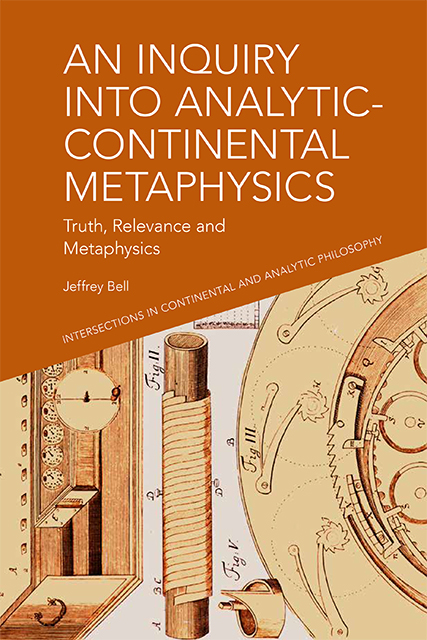Book contents
- Frontmatter
- List of Contents
- Acknowledgements
- Introduction
- §1 Problem of the New
- §2 Problem of Relations
- §3 Problem of Emergence
- §4 Problem of One and Many
- §5 Plato and the Third Man Argument
- §6 Bradley and the Problem of Relations
- §7 Moore, Russell and the Birth of Analytic Philosophy
- §8 Russell and Deleuze on Leibniz
- §9 On Problematic Fields
- §10 Kant and Problematic Ideas
- §11 Armstrong and Lewis on the Problem of One and Many
- 12 Determinables and Determinates
- 13 The Limits of Representational Thought
- 14 Learning from a Cup of Coffee
- 15 Carnap and the Fate of Metaphysics
- 16 Truth and Relevance
- Conclusion
- Bibliography
- Index
§4 - Problem of One and Many
Published online by Cambridge University Press: 25 October 2023
- Frontmatter
- List of Contents
- Acknowledgements
- Introduction
- §1 Problem of the New
- §2 Problem of Relations
- §3 Problem of Emergence
- §4 Problem of One and Many
- §5 Plato and the Third Man Argument
- §6 Bradley and the Problem of Relations
- §7 Moore, Russell and the Birth of Analytic Philosophy
- §8 Russell and Deleuze on Leibniz
- §9 On Problematic Fields
- §10 Kant and Problematic Ideas
- §11 Armstrong and Lewis on the Problem of One and Many
- 12 Determinables and Determinates
- 13 The Limits of Representational Thought
- 14 Learning from a Cup of Coffee
- 15 Carnap and the Fate of Metaphysics
- 16 Truth and Relevance
- Conclusion
- Bibliography
- Index
Summary
A final problem that will occupy us in the pages to follow is the problem of the one and the many. In his final publication, Donald Davidson discussed a version of this problem as the problem of predication (see §16). The problem, in short, is how to account for the relation between a predicate, descriptor, or universal and the particular subjects that bear this predicate. This problem arises when we take up the Stranger's challenge in the Sophist (see Davidson 2005a, 80–1) and wonder how we can meaningfully make true and false statements, such as ‘Theaetetus sits’ or ‘Theaetetus flies’ (Sophist 260A-C), when, as in the case of false statements, there is no particular subject (Theaetetus) for whom the predicate (…is flying) applies. How can we meaningfully refer to or speak of that which does not exist? Davidson will chart the history of attempts to address this problem, beginning with Plato’s, and he ends by offering his own suggested solution (to be discussed in §16). Long before turning to Davidson, we will begin with Plato's account of the relationship between the concepts and categories through which we think about the world and the many particulars that are identified by way of these concepts and categories. What is this relationship? Do we again have another version of the problem of relations, this time the problem of the relation between the One category, universal, or form and the Many particulars that share in this One form? It is to these questions that we now turn.
- Type
- Chapter
- Information
- An Inquiry into Analytic-Continental MetaphysicsTruth, Relevance and Metaphysics, pp. 18Publisher: Edinburgh University PressPrint publication year: 2022



